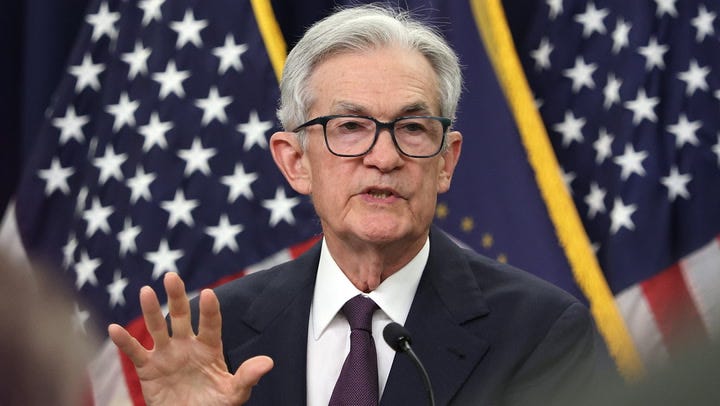Federal Reserve's Bowman backs July rate cut as inflation fears ease

Federal Reserve Vice Chair for Supervision Michelle Bowman, recently elevated by President Donald Trump as the central bank’s top bank overseer, said Monday the time to cut interest rates appears imminent as she is growing more worried about labor market risks and less concerned high import taxes will cause an ongoing inflation problem.
“It is time to consider adjusting the policy rate,” Bowman told a gathering held in Prague.
Bowman said inflation appears to be on a sustained path back to 2% and she said she expects “only minimal impact” on inflation from trade policy. “Should inflation pressures remain contained, I would support lowering the policy rate as soon as our next meeting in order to bring it closer to its neutral setting and to sustain a healthy labor market,” Bowman said.
The central banker's comments on the interest rate outlook caught the attention of financial markets, where stock prices got a hop and futures markets bolstered what are still low odds the central bank will cut rates when the rate-setting Federal Open Market Committee meets at the end of July.
Last week, the FOMC left its overnight target-rate range fixed between 4.25% and 4.5%. Officials remained in a wait-and-see mode amid the considerable economic uncertainty created by President Donald Trump’s erratically implemented trade policy. Most Fed officials are worried surging import taxes could depress growth while restarting what had been cooling inflation pressures.
Even with Trump's retreat on the most extreme tariff levels, the overall level of his current import taxes, which are currently facing a court challenge, is higher than anything Americans have seen in many years.
"Increases in tariffs this year are likely to push up prices and weigh on economic activity," Fed Chairman Jerome Powell said Wednesday following the FOMC meeting.
"It takes some time for tariffs to work their way through," Powell noted, while adding that when it comes to the tariffs "we're beginning to see some effects, and we do expect to see more of them over coming months."
Bowman said in her speech that she supported the Fed’s decision to hold steady. But she also noted that she sees far fewer storm clouds ahead for the economy with more clarity arriving for the outlook.
Bowman’s openness to cutting rates soon is joined by that of Fed Governor Christopher Waller, who said in a television interview Friday he’d also consider a rate cut at the July 29-30 meeting. Waller is widely considered to be in the running to succeed Fed Chair Jerome Powell, whose term ends next year.
Trump has repeatedly pressured the Fed to pursue very large rate cuts akin to those taken in times of crisis amid regular insults to Powell. Observers believe any Fed chair would need to align with Trump’s desire for much lower short-term borrowing costs, although doing so could put the Fed's inflation fighting credibility at risk.
A Goldman Sachs economist said in a note that the next few months will be telling for the price pressure outlook, telling clients in a note Monday that "we expect the largest tariff effects on monthly inflation to show up from June through August."
Bowman's move toward a more dovish outlook for policy represents a shift for the policymaker, although she did note in recent comments she was growing more attentive to labor market risks.
Bowman noted the job market is still in a good place but she’s more worried about what lies ahead for the sector, and that’s part of what’s informing her current monetary policy views. “We should also recognize that downside risks to our employment mandate could soon become more salient, given recent softness in spending and signs of fragility in the labor market,” Bowman said.
The Fed official was also quite sanguine on the inflation outlook, saying “it appears that any upward pressure from higher tariffs on goods prices is being offset by other factors and that the underlying trend in core (Personal Consumption Expenditures) inflation is moving much closer to our 2% target than is currently apparent in the data.”
Bowman also said Trump's policy mix is likely to have a positive impact on the outlook. "Less restrictive regulations, lower business taxes, and a more friendly business environment will likely boost supply and largely offset any negative effects on economic activity and prices," Bowman said.